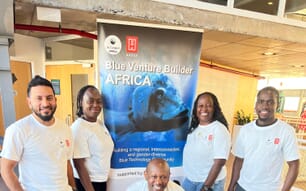After rodents, fish are the second most commonly used animal in laboratory research and testing. However, the methods currently used for monitoring their welfare such as checking activity levels, stress hormones post mortem and clinical signs, are of limited value. These methods can often be ambiguous, invasive and provide feedback too late for researchers to act on.
Scientists specialising in animal behaviour, cognition and welfare from the University of Lincoln, UK, have secured grant funding of more than £300,000 to devise an effective new tool for assessing the welfare of fish.
Funded by the NC3Rs (National Centre for the Replacement Refinement & Reduction of Animals in Research), the project will develop and validate an automated 'social network' analysis tool using computer systems that will monitor changes in social interactions within groups of zebrafish and rainbow trout, and identify those changes which provide early warning signs of compromised welfare.
The research will also examine how interventions designed to improve welfare, such as enriching the fishes' environment, impact on their behaviour.
The three-year project will be led by Dr Oliver Burman, together with his co-investigator Dr Thomas Pike - both from the School of Life Sciences at the University of Lincoln.
Dr Burman said: "Fish are increasingly popular as a research model, and we know that they can experience pain and demonstrate aversive behaviour when involved in scientific studies. There is therefore a clear and urgent need to identify ways in which we can refine the procedures used to assess fish welfare."
The project will build up an extensive bank of knowledge and data about how groups of zebrafish and rainbow trout interact with each other in different conditions. Observations of the frequency, strength, type and direction of their associations with each other will be analysed to reveal to what extent deviations from their normal behaviour can inform us about their wellbeing.
Dr Pike explained: "By developing a system that immediately recognises and alerts us to the first signs of distress, we hope to be able to ensure that fish welfare is protected whenever they are used in a scientific study."
The funding was awarded as part of the NC3Rs 2016 project grant competition, which supports new approaches to reducing reliance on animals in research and improving animal welfare.





